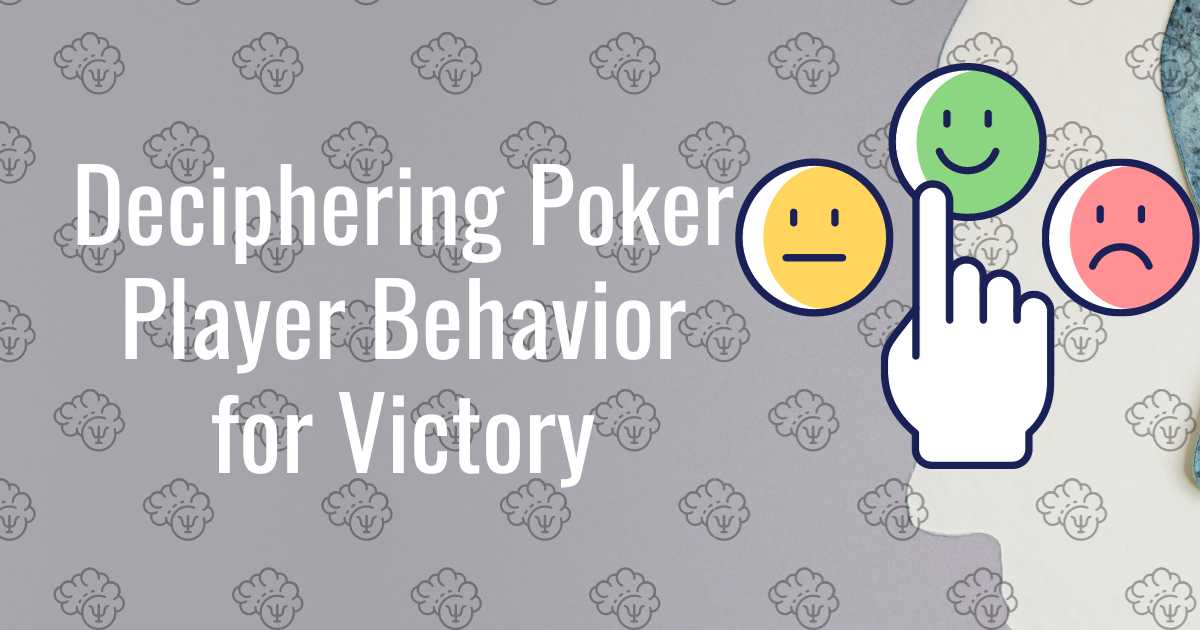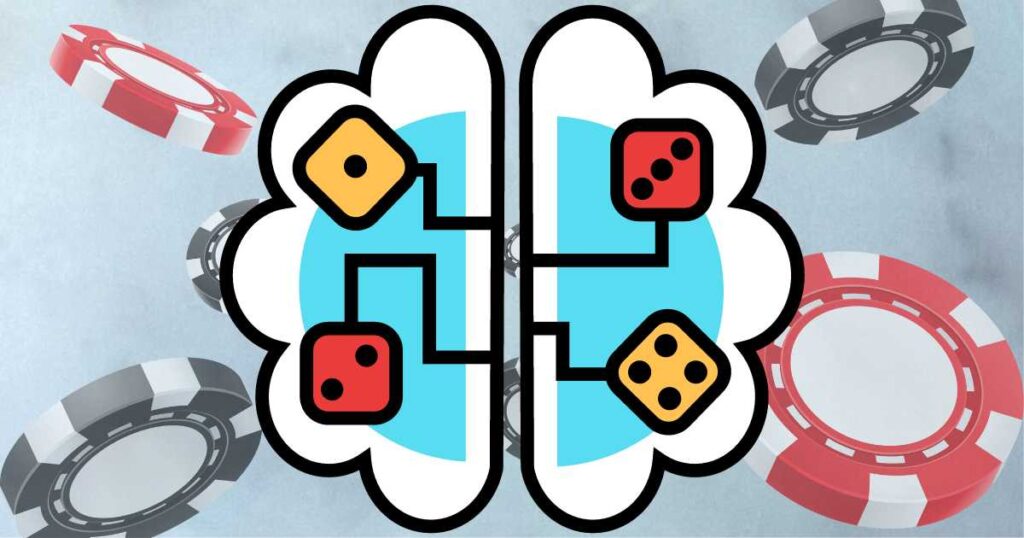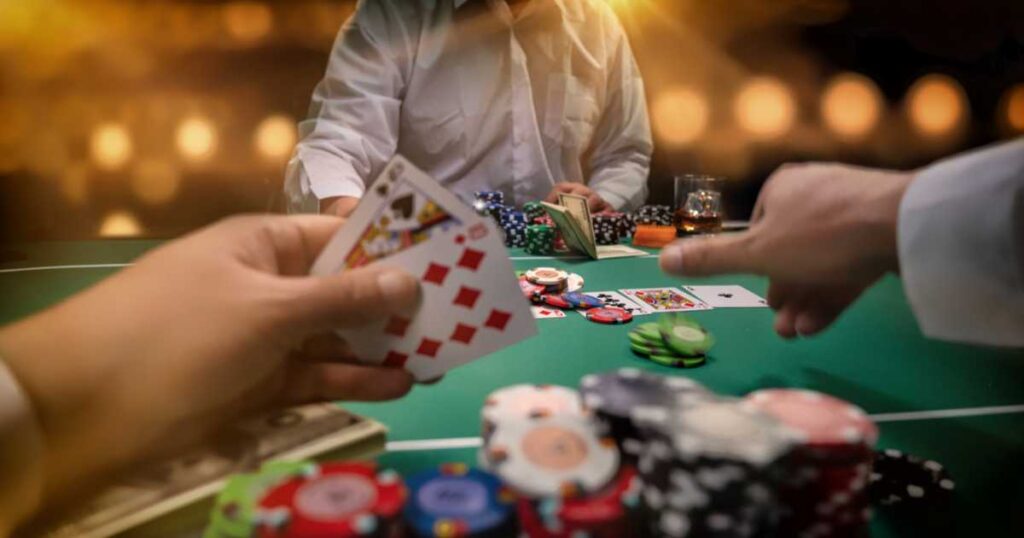
Poker, folks, isn’t just your run-of-the-mill card game. It’s a thrilling showdown of not just cards, but wits, strategy, and yes, psychology! Many folks believe this table game is all about luck, but if you’re in the know, you understand that understanding your opponents’ minds is the real name of the game.
In this blog post, join Extreme Gaming 88 as we delve deep into the intriguing realm of psychological cues, exploring the secrets of deciphering player behavior that can provide you with a significant advantage.
Unveiling the Power of Body Language in Competitive Games – This video emphasizes the significance of grasping your opponent’s body language in competitive scenarios.

Get ready because poker game is the ultimate test of your mental prowess. It’s not merely about understanding the rules and card values; it’s about honing the mental skills that can lead you to success.
Picture this: Patience, focus, adaptability, and emotional control. These are the mental power-ups you need. Patience helps you bide your time for the perfect moment. Focus ensures you don’t miss a trick. Adaptability lets you switch gears when the game throws curveballs and emotional control. Well, that keeps you from going off the rails when the stakes are high.
And recall this insightful quote from Phil Hellmuth, a renowned expert: ‘Success is 100% skill and 50% luck.’ While it may seem mathematically peculiar, it highlights the significance of skill, strategy, and, naturally, psychology in competitive endeavors.
Internal link: Who is Speaker Jessica Starling?
Time to dispel the “blank face” myth, folks. We’ve all seen those movies where people keep their expressions neutral, concealing their emotions like pros. But in reality, it’s more than just a stone-cold stare.
It’s about your body language, the tone of your voice, and even those tiny, fleeting microexpressions—the quick facial twitches that can reveal your true feelings, no matter how hard you try to hide them.
So, what’s the scoop? Well, folks who concentrate solely on their facial expressions often miss other physical signals. A tense posture, a subtle shift in weight, or even a sneaky little twitch can spill the beans. The takeaway? It’s not about being an emotionless robot; it’s about understanding all the signals you’re giving off.
let’s dive into understanding our fellow card game enthusiasts a bit better. The tables where we play card games are akin to a playground for psychology, teeming with various player personalities. Here are a few examples:
Getting to know these player types helps you anticipate their moves and adjust your game accordingly. Up against an aggressor? Tighten your grip and wait for those powerhouse hands.
Internal link: Toucan Facts: What You Didn’t Know About These Amazing Birds
Emotions are an inherent part of any competitive activity, and they can have a significant impact on your decision-making. Have you ever experienced a situation where your emotions took over and led to impulsive choices?
This phenomenon is not limited to one specific area; it can happen in various competitive scenarios. When emotions take the reins, it often follows a series of setbacks or a particularly frustrating moment. Reacting emotionally can result in less-than-ideal decisions, and that’s something to avoid.
Professionals who excel in high-pressure environments understand the importance of emotional control. When they sense that emotional turmoil is creeping in, they take proactive steps to regain composure. Some might pause for a moment, practice relaxation techniques, or engage in mindfulness exercises. The key is to maintain a cool head, especially when the stakes are high.
How To Read Body Language Like a Pro – In this video, a body language analyst reacts to a card game cheating scandal and discusses the role of body language in detecting deception.

let’s delve into the mental aspects. Cognitive biases and heuristics, which are basically shortcuts our brains use when we make decisions, can significantly affect your decision-making in various situations. Here are some examples:
The important point to remember is to be conscious of your cognitive biases and make decisions with a clear mind. Logic and rational thinking are your greatest allies in strategic card games.
let’s dive into the world of table games and the intriguing dynamics that unfold around the gaming table. It’s not just about the game itself; it’s also about the interactions between players.
Experienced participants at the table are skilled at playing psychological tricks. They engage in friendly banter to glean information from their opponents, use reverse psychology to lead others in unexpected directions, and on occasion, adopt the guise of inexperienced players to disrupt their rivals’ strategies.
One memorable example? The “Moneymaker Bluff” during the 2003 World Series of Games. Chris Moneymaker bluffed his opponent into folding a stronger hand with a bold all-in move—an exquisite display of mind games in poker game history!
So there you have it, the secret sauce of the poker game: comprehending psychology and player behavior at the table. It’s not merely about the game pieces; it’s about the mental strategies, recognizing different player profiles, and becoming proficient in those psychological maneuvers.
As you progress in your journey, remember this: the mental aspect is as crucial as your skillset in poker game. Practice managing emotions, navigating cognitive biases, and fully embracing the psychological dynamics of poker game. You’ll become a formidable contender in your endeavors.
Body Language in Poker Game – this video talks about the body language at this card game table.
We hope you found this whirlwind journey into the realm of psychology enlightening.
Do you have questions, stories, or a desire to delve deeper into the topic of psychological insights? Feel free to reach out in the comments section. And if you’re eager for more wisdom on this subject, be sure to subscribe to our newsletter.
There’s a world of knowledge and enjoyment waiting for you!
This card game is a unique blend of both luck and skill. While luck plays a role in the cards you’re dealt, skill, strategy, and understanding player psychology are equally important in determining your success at poker game table.
Understanding poker game player behavior is crucial because it allows you to anticipate your opponent’s moves and adapt your strategy accordingly. By recognizing different player archetypes and psychological tactics, you can gain a competitive edge.
Not necessarily. While staying composed is crucial, achieving a perfectly unreadable poker game face is unrealistic. It’s more about recognizing the non-verbal cues you convey and perceive, such as body language and microexpressions.
Experiencing tilt is a common challenge in card games. To avoid it, practice emotional control, take breaks when needed, and employ relaxation techniques like deep breathing. Recognizing the signs of tilt is the first step to overcoming it.
You can utilize psychology by understanding human behavior, identifying cognitive biases, and making informed decisions. It’s not solely about trickery; it’s also about mastering the psychological aspects of competition in poker game.
To improve your skills in this area and gain a deeper understanding of psychology, make it a habit to practice regularly, delve into the subject matter, and participate in relevant online communities and forums. Reading books and watching videos on the topic of psychology can also be incredibly valuable.